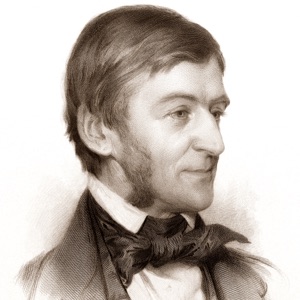
Ralph Waldo Emerson (1803 – 1882) was an American essayist, lecturer, philosopher, and poet who led the transcendentalist movement of the mid-19th century. Emerson served as a junior pastor in Boston’s Second Church, but after his first wife’s death, he began to disagree with the church’s methods, eventually leading to his resignation. Upon his return home from a tour of Europe in 1833 he began writing his first published essay, Nature. In March 1837 Emerson gave a series of lectures on the philosophy of history in Boston, which began his career as a lecturer. He eventually gave as many as 80 lectures a year, traveling across the United States. He disseminated his thoughts through dozens of published essays and more than 1,500 public lectures.

Quotes by Ralph Waldo Emerson…
Dream delivers us to dream, and there is no end to illusion. Life is a train of moods like a string of beads, and, as we pass through them, they prove to be many-colored lenses which paint the world their own hue, and each shows only what lies in its focus.
I am defeated all the time, yet to victory I am born.
The world is his who can see through its pretension.
It is no proof of a man’s understanding to be able to confirm whatever he pleases; but to be able to discern that what is true is true, and that what is false is false; this is the mark and character of intelligence.
Do not cumber yourself with fruitless pains to mend and remedy remote effects; let the soul be erect, and all things will go well.
The walls of rude minds are scrawled all over with facts, with thoughts. They shall one day bring a lantern and read the inscriptions.
A good intention clothes itself with sudden power.
Power obeys reality, and not appearances; power is according to quality, and not quantity.
It is time to undervalue what he has valued, to dispossess himself of what he has acquired, and with Caesar to take in his hand the army, the empire and Cleopatra, and say, “All these will I relinquish, if you will show me the fountains of the Nile.”
It is a secret which every intellectual man quickly learns, that beyond the energy of his possessed and conscious intellect he is capable of a new energy… by abandonment to the nature of things; that beside his privacy of power as an individual man, there is a great public power on which he can draw, by unlocking, at all risks, and suffering the ethereal tides to roll and circulate through him; then he is caught up into the life of the Universe.
